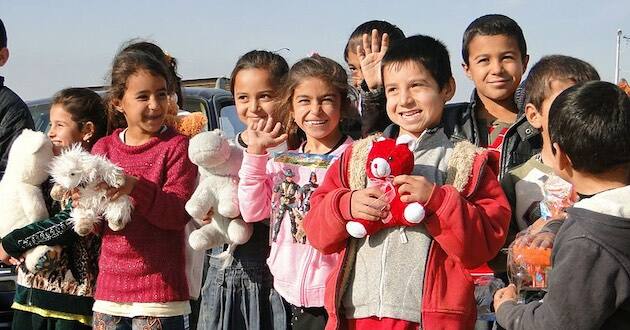Ten years ago this week the Islamic State (IS) overran Christian and Yazidi towns in northwestern Iraq, the climax to its brutal wave of terror in the country. Thousands of Yazidis were killed, and tens of thousands were displaced.
On the ten-year anniversary, Christian Solidarity International (CSI) project partner William Warda of the Hammurabi Human Rights Organization describes what he experienced and talks about the future of Iraq’s Christian minority.
CSI is a Christian human rights organization promoting religious liberty and human dignity.
“Before the United States-led invasion of Iraq in 2003 there were approximately 50,000 Christians living in Mosul, Iraq’s second city. That number decreased drastically between 2008 and 2010 owing to Islamist violence. Suspected al-Qaeda militants bombed churches, monasteries and Christian homes, prompting a mass exodus of Christians. Dozens of Christians were kidnapped and killed. By 2014, there were only 5,000 Christians in Mosul,” writes Warda in an eyewitness report on the CSI website.
Fall of Mosul
A girl forced to flee her home during IS’s 2014 invasion holds a picture she drew, representing an IS fighter. Image: csi
“Then on June 10, 2014, Mosul fell to Islamic State (IS) terrorists. The news came as a great shock. The reason it was so unexpected was that around 10,000 soldiers and state security operatives, equipped by the U.S. with the latest military technology, were based in the city…
“While I was in Baghdad monitoring the situation, our observers in the center of Mosul and the Nineveh Plains were relaying events to us moment by moment. I received a call from Mosul saying that IS had pasted statements on the doors of mosques and in public squares and made announcements by loudspeaker. They were warning Christians to leave Mosul within three days. The fate of those who remained there after that point would be either forcible conversion to Islam or death.
“During this short period, some left Mosul. IS fighters stripped them of their money and belongings as they passed through the checkpoints to leave. But those who remained in the city were forcibly converted to Islam, and the women captured and raped.
“In mid-July, I concluded, based on what was happening inside Mosul, that IS would invade the surrounding Nineveh Plains and other areas. After all, its slogan was ‘remaining and expanding.’
False assurances
“Therefore, I and my colleagues met with the religious leaders in Qaraqosh – the largest Christian city in Iraq – and alerted them that IS was planning to invade.
“But the religious leaders had believed assurances from the leaders of the Kurdish Regional Government (KRG) that their forces in the region could protect them and there was no need to worry…
“Unfortunately, about two weeks later, what I had feared happened. Qaraqosh, Bartella, Tel Kaif and other towns in the Nineveh Plains fell to IS on August 7, 2014. My own house in Qaraqosh was looted and plundered by IS.
“The Yazidi areas fell to IS a few days earlier, and the Yazidis there were subjected to killing, captivity, sexual violence and massacres that rose to the level of genocide…
Help for the displaced
“I was in the city of Sulaymaniyah in northwestern Iraq when messages started to arrive from colleagues living in these towns and villages who were desperately trying to protect their families from IS. I advised them to head to the small Christian villages north of Duhok in northern Iraq and to the remote areas on the Turkish border.
“My team from the Hammurabi Organization did all they could to help the displaced. With the help of CSI, we managed to assist more than 20,000 displaced families (nearly 80,000 displaced persons)…
The future of the Christian minority
“I don’t believe that Christians will ever disappear completely from Iraq. What we faced from IS was a recurrence of what we already faced in the days of Hulagu and Genghis Khan and during the rule of the Mongols, Tatars and Turks, and in other periods during the Islamic Caliphate. Despite this, Christianity remained steadfast in the East, especially in Iraq…
“The survival of Christianity in Iraq has become dependent on the will and mentality of the Muslim majority. The more openness and civil life spread in Muslim society, the greater the chances of Christianity’s survival in Iraq. However, if isolation, fanaticism and Islamic religious extremism increase, the doors will be closed for Christians.”
Read the full report here: Iraq: William Warda recalls the Islamist terror of 2014 – Christian Solidarity International (csi-int.org)
Reprinted with permission from CSI.
Top photo: Defend International Reaches out to Yazidis, Creative Commons 2.0 license.
Small photo: CSI, courtesy.
